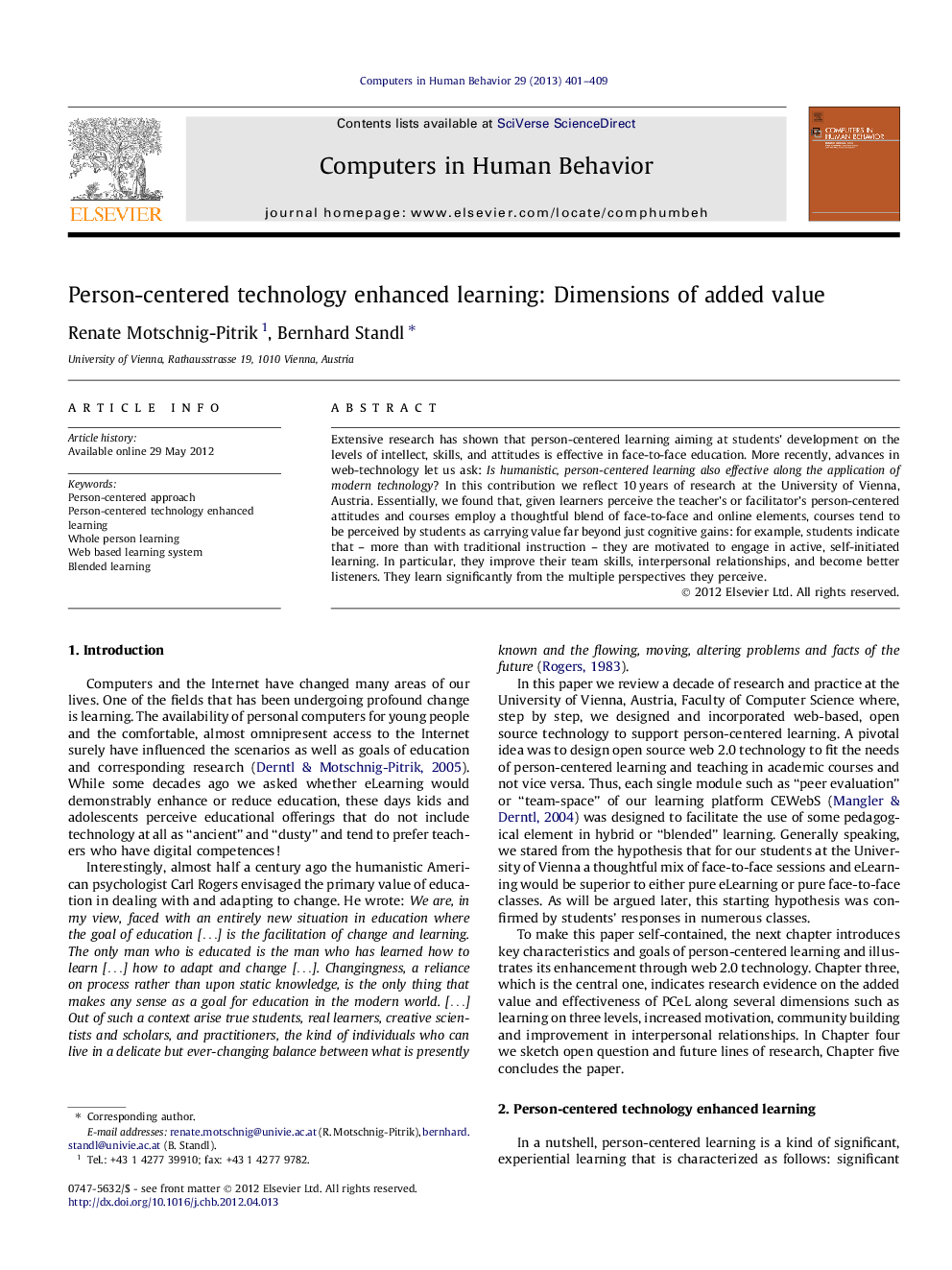| Article ID | Journal | Published Year | Pages | File Type |
|---|---|---|---|---|
| 350937 | Computers in Human Behavior | 2013 | 9 Pages |
Extensive research has shown that person-centered learning aiming at students’ development on the levels of intellect, skills, and attitudes is effective in face-to-face education. More recently, advances in web-technology let us ask: Is humanistic, person-centered learning also effective along the application of modern technology? In this contribution we reflect 10 years of research at the University of Vienna, Austria. Essentially, we found that, given learners perceive the teacher’s or facilitator’s person-centered attitudes and courses employ a thoughtful blend of face-to-face and online elements, courses tend to be perceived by students as carrying value far beyond just cognitive gains: for example, students indicate that – more than with traditional instruction – they are motivated to engage in active, self-initiated learning. In particular, they improve their team skills, interpersonal relationships, and become better listeners. They learn significantly from the multiple perspectives they perceive.
► In this paper, we review a decade of research on technology-enhanced learning. ► Web-based technology was used to complement interaction in face-to-face settings. ► In a trustful person-centered climate of openness, respect and understanding. ► Qualitative and quantitative research methods were employed. ► Students improved their team skills and interpersonal relationships.
